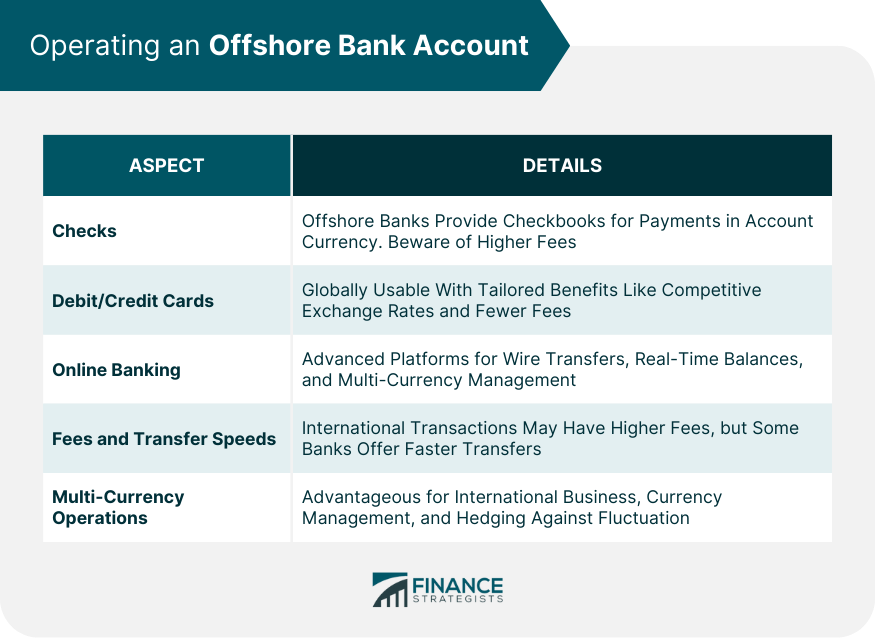Comprehending the Lawful Effects of Offshore Firm Development

Lawful Structure for Offshore Companies
When establishing an overseas business, recognizing the lawful framework regulating its formation and procedure is important for compliance and danger monitoring. Offshore companies operate under particular laws and regulations that differ from those of onshore entities. The lawful structure for overseas companies typically includes provisions for business enrollment, investor demands, director responsibilities, and tax obligation responsibilities.
Business enrollment involves sending the required paperwork to the proper governing authorities in the picked territory. This procedure often calls for detailed details concerning the firm's structure, shareholders, and intended tasks. Additionally, offshore business must stick to certain shareholder requirements, such as keeping a register of investors and keeping this details approximately date.
Supervisors of overseas business have fiduciary responsibilities to act in the ideal passions of the firm and its investors. They are in charge of overseeing the company's procedures, making sure conformity with all pertinent laws, and taking care of threats efficiently. Understanding the tax commitments of an offshore firm is important to stay clear of any kind of potential lawful problems. By adhering to the legal structure controling offshore business, organizations can operate with self-confidence while lessening lawful risks.


Tax Obligation Implications and Laws
Comprehending the tax obligation implications and laws is paramount when taking into consideration the facility and operation of an offshore firm. Offshore business are typically subject to beneficial tax regimes, providing lowered or no tax rates on foreign-earned income.
Tax obligation laws for offshore business vary significantly throughout jurisdictions, and it is vital to seek expert suggestions to comprehend the details needs and responsibilities. Failing to adhere to tax regulations can result in severe consequences, consisting of large penalties, reputational damage, and also lawful activity. In addition, overseas jurisdictions might have reporting responsibilities to disclose financial info to pertinent authorities. Consequently, comprehensive understanding of tax obligation legislations and laws, along with proper tax planning, are vital to make certain the effective and compliant procedure of an overseas company.
Conformity Demands and Reporting
Ensuring compliance with regulative demands and preserving precise coverage are essential facets of taking care of an overseas company successfully and transparently. Offshore business need to follow the regulations and guidelines of both the territory in which they are incorporated and any kind of other relevant territories where they conduct service. Conformity demands commonly include filing annual returns, monetary statements, and tax obligation records with the proper authorities. Failure to meet these responsibilities can lead to penalties, fines, or perhaps the retraction of the business's enrollment.
Along with regulative compliance, overseas firms are frequently based on blog here reporting needs to guarantee openness and prevent prohibited activities such as cash laundering or tax evasion. Coverage obligations may entail revealing details regarding the firm's ownership framework, economic tasks, and beneficiaries. This information might require to be shared with regulatory bodies, tax authorities, or other governmental agencies, relying on the territory.
Maintaining detailed and accurate records is vital for showing compliance and reacting to any inquiries or audits successfully. Offshore companies ought to apply durable reporting mechanisms and inner controls to guarantee that they satisfy all lawful demands and run with stability.
Asset Defense and Privacy Laws
In the world of overseas company development, an essential factor to consider is the interplay in between asset protection more tips here approaches and privacy regulations. By structuring properties within an overseas company, individuals can guard their wide range and expand their holdings across various lawful frameworks. Ultimately, understanding the detailed relationship between property defense techniques and personal privacy laws is critical when taking into consideration overseas firm formation.
Threats and Challenges to Take into consideration
When venturing into offshore business development, sensible consideration of possible risks and challenges is necessary for informed decision-making and strategic planning. One considerable danger to consider is the possibility of her comment is here raised analysis from regulatory authorities due to the viewed organization of offshore entities with tax evasion and money laundering. This heightened scrutiny can lead to comprehensive compliance needs and potential legal ramifications otherwise correctly attended to. In addition, political instability or modifications in offshore jurisdictions can pose a threat to the connection of procedures and the security of assets held by the offshore business.
Difficulties might likewise emerge concerning the complexity of offshore business frameworks and the requirement for skilled legal and economic advice to browse the elaborate regulative frameworks of various territories (offshore company formation). Keeping compliance with varying international legislations and guidelines, in addition to prospective language barriers and cultural distinctions, can better make complex the offshore firm development procedure. It is essential to be aware of these risks and difficulties before waging overseas firm formation to minimize prospective pitfalls and ensure a lawfully sound and smooth establishment
Conclusion
To conclude, offshore business development entails navigating complex lawful frameworks, tax obligation ramifications, compliance requirements, and personal privacy laws. Understanding these facets is essential for mitigating threats and difficulties linked with overseas business procedures. It is very important for businesses and individuals taking into consideration offshore company development to seek specialist advice to make sure conformity with policies and to safeguard their possessions successfully.
The legal structure for overseas firms generally consists of provisions for company registration, investor requirements, director responsibilities, and tax obligations.
Directors of overseas business have fiduciary duties to act in the ideal passions of the firm and its investors. By adhering to the lawful structure controling overseas business, services can operate with self-confidence while decreasing legal risks.
Furthermore, political instability or modifications in overseas territories can present a threat to the continuity of procedures and the security of properties held by the overseas company. - offshore company formation
In verdict, overseas business development involves navigating complex lawful structures, tax ramifications, compliance demands, and privacy regulations.
Comments on “Offshore Company Formation: Crucial Steps for International Growth”